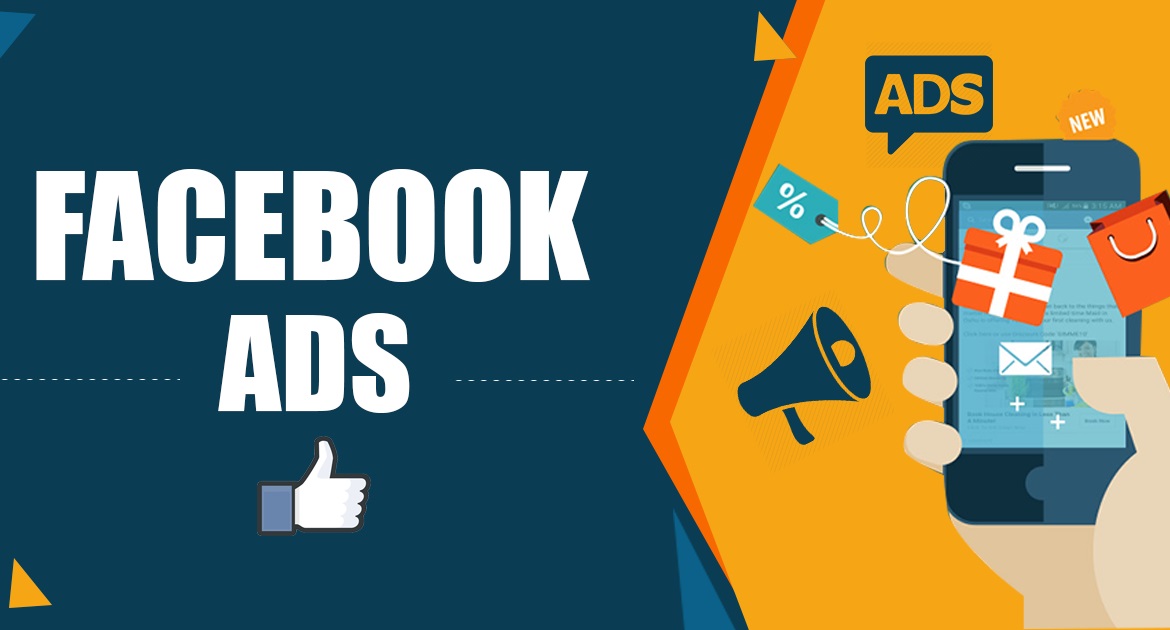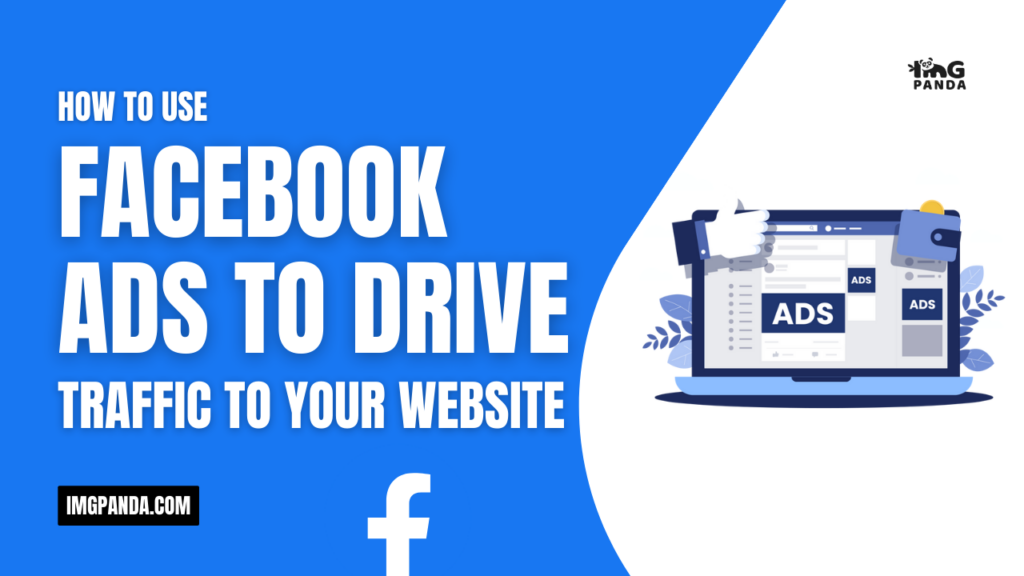Introduction
The world of digital marketing has grown tremendously over the past decade. With the rise of social media platforms, businesses now have a wealth of opportunities to reach their target audiences online. Facebook, with its massive user base of over 2.8 billion active users, has become one of the most popular and effective platforms for digital marketing. Facebook Ads, the platform's advertising service, allows businesses to create and run ads that can reach a highly targeted audience.
In this article, we will explore how to use Facebook Ads to drive traffic to your website. We will discuss how to define your target audience, set up your Facebook Ad campaign, create your Facebook Ad, launch your ad campaign, track and measure results, optimize your Facebook Ad campaign, and ultimately increase website traffic. By the end of this article, you will have a better understanding of how to use Facebook Ads effectively to drive traffic to your website and grow your business.
Also Read This: Understanding YouTube Lag and Effective Solutions to Improve Streaming
Define Your Target Audience
Defining your target audience is a crucial step in any marketing campaign, including Facebook Ads. Understanding who your ideal customer is, what they are interested in, and how they behave on Facebook will help you create highly targeted ads that resonate with your audience and drive traffic to your website.
To define your target audience for your Facebook Ads campaign, consider the following steps:
Determine demographics:
Start by identifying the demographic characteristics of your target audience, such as age, gender, location, and language. This information will help you narrow down your audience and ensure that your ads are shown to the right people.
Research interests and behaviors:
Use Facebook's Audience Insights tool to research the interests and behaviors of your target audience. This tool allows you to see data on things like what pages your target audience likes, what websites they visit, and what products they purchase. This information can help you craft ads that speak directly to your audience's interests and needs.
Determine how to reach your target audience on Facebook:
Consider how your target audience uses Facebook. Are they primarily on desktop or mobile devices? Do they use Facebook primarily for entertainment or for work-related purposes? Understanding how your audience uses Facebook can help you tailor your ads to their preferences.
Use retargeting:
Retargeting is a powerful feature that allows you to show ads to people who have already interacted with your website or Facebook page. This can be a highly effective way to drive website traffic from people who have already shown interest in your business.

Also Read This: Canva Template Image Replacement
Setting Up Your Facebook Ad Campaign
Setting up a Facebook Ad campaign is a crucial step in using Facebook Ads to drive traffic to your website. The following steps will guide you through the process of setting up your Facebook Ad campaign:
Choose your objective:
The first step in setting up your Facebook Ad campaign is to choose your objective. Facebook offers a range of objectives to choose from, such as brand awareness, traffic, and conversions. Choose the objective that aligns with your campaign goals.
Select your targeting options:
Next, select your targeting options. Facebook's targeting options allow you to choose who sees your ads based on criteria such as demographics, interests, and behaviors. You can also create custom audiences based on data you have collected, such as email addresses or website visitors.
Set your budget:
Set your budget for the campaign. You can choose to set a daily budget or a lifetime budget. Facebook also offers bidding options that allow you to control how much you pay for clicks or impressions.
Choose your ad format:
Choose the ad format that best suits your campaign goals. Facebook offers a range of ad formats, including image ads, video ads, carousel ads, and more. Choose the format that will best showcase your products or services and engage your audience.
Create your ad:
Once you have chosen your ad format, it's time to create your ad. Write compelling ad copy that speaks directly to your target audience and includes a clear call to action. Choose high-quality visuals that will catch the eye of your audience.
Review and launch your campaign:
Before launching your campaign, review it to ensure that everything is set up correctly. Once you are satisfied with your campaign, launch it.

Also Read This: Canva PNG Image Addition
Creating Your Facebook Ad
Creating a compelling Facebook Ad is a crucial step in using Facebook Ads to drive traffic to your website. The following steps will guide you through the process of creating a Facebook Ad:
Write compelling ad copy:
Start by writing ad copy that is compelling and speaks directly to your target audience. Your ad copy should be concise, and clear, and include a clear call to action. Use language that resonates with your audience and highlights the benefits of your product or service.
Choose high-quality visuals:
Choose visuals that are high-quality and eye-catching. Your visuals should be relevant to your ad copy and communicate your message clearly. Use images or videos that showcase your products or services in the best light possible.
Add a call to action:
A call-to-action (CTA) is a crucial part of any Facebook Ad. Your CTA should be clear and encourage your audience to take action, such as clicking on your ad or visiting your website. Make sure your CTA is consistent with your campaign goals.
Choose the right ad format:
Choose the ad format that best suits your campaign goals and resonates with your target audience. Facebook offers a range of ad formats, including image ads, video ads, carousel ads, and more. Choose the format that will best showcase your products or services and engage your audience.
Preview your ad:
Before launching your ad, preview it to ensure that everything looks and works as intended. Check for any typos or errors in your ad copy and make sure your visuals are high-quality. Here's a video tutorial on setting up Facebook ads in the year 2023.
Also Read This: How to Check Your YouTube Subscription Duration
Launching Your Facebook Ad Campaign
Launching your Facebook Ad campaign is an exciting and important step in using Facebook Ads to drive traffic to your website. The following steps will guide you through the process of launching your Facebook Ad campaign:
Choose a start date and end date:
Choose the date you want your ad campaign to start and the date you want it to end. Consider the duration of your campaign and your budget when choosing your start and end dates.
Launch your campaign:
Once you have reviewed your ad and chosen your start and end dates, it's time to launch your campaign. Click the "Create" or "Publish" button to launch your ad.
Monitor your campaign:
once your campaign is launched, monitor it closely to see how it is performing. Check your ad's analytics to see how many people are seeing your ad, how many are clicking on it, and how many are visiting your website.
Make adjustments:
Use the data from your ad analytics to make adjustments to your campaign. Consider changing your ad copy or visuals, refining your targeting options, or adjusting your budget. Use A/B testing to test different versions of your ad and see what works best.

Also Read This: How to Change Your YouTube Background for a Unique Channel Look
Tracking and Measuring Results
Tracking and measuring results is a crucial step in using Facebook Ads to drive traffic to your website. The following steps will guide you through the process of tracking and measuring your results:
Monitor website traffic:
Use Google Analytics or other web analytics tools to monitor website traffic from Facebook Ads. Identify how many people are visiting your website from your Facebook Ads and how long they are staying on your site.
Track conversions:
Set up conversion tracking to see how many people are taking the desired action on your website, such as making a purchase or filling out a form. This data will help you understand the effectiveness of your Facebook Ads campaign.
Evaluate the success of your ad campaign:
Evaluate the success of your ad campaign by measuring your key performance indicators (KPIs). Some common KPIs to consider include website traffic, click-through rate (CTR), cost per click (CPC), conversion rate, and return on investment (ROI).
Identify what is working and what isn't:
Use the data you collect to identify what is working and what isn't working in your Facebook Ads campaign. Consider making adjustments to your ad copy, visuals, targeting options, or budget based on your findings.
Refine your targeting options:
Refine your targeting options to reach the most relevant audience for your Facebook Ads. Consider creating custom audiences based on data you have collected, such as email addresses or website visitors.
![]()
Also Read This: Virus Outbreak Protection Features of Fortiguard Downloader
FAQs
What types of businesses can benefit from using Facebook Ads to drive website traffic?
Any business that has an online presence can benefit from using Facebook Ads to drive website traffic. This includes e-commerce businesses, service-based businesses, and B2B companies.
How much does it cost to use Facebook Ads?
The cost of using Facebook Ads varies depending on factors such as the ad format, the targeting options, and the competition for ad space. You can set a budget for your campaign, and Facebook offers bidding options that allow you to control how much you pay for clicks or impressions.
What are some best practices for creating a successful Facebook Ad campaign?
Some best practices for creating a successful Facebook Ad campaign include defining your target audience, choosing the right ad format, creating compelling ad copy and visuals, setting a budget, and tracking and measuring your results.
How can I track the success of my Facebook Ads campaign?
You can track the success of your Facebook Ads campaign by monitoring website traffic from Facebook Ads, tracking conversions, and evaluating your key performance indicators (KPIs) such as website traffic, click-through rate (CTR), cost per click (CPC), conversion rate, and return on investment (ROI).
How often should I make adjustments to my Facebook Ads campaign?
It is a good practice to monitor your Facebook Ads campaign regularly and make adjustments as needed. Consider making adjustments based on the data you collect, such as changing your ad copy, visuals, targeting options, or budget. It's important to continuously refine your campaign to optimize its effectiveness.
Conclusion
In conclusion, Facebook Ads are a powerful tool that businesses can use to drive traffic to their website and increase their online presence. By following the steps outlined in this article, businesses can use Facebook Ads to reach a highly targeted audience and achieve their marketing goals.
Defining your target audience is the first step in creating a successful Facebook Ads campaign. Understanding who your ideal customer is and what they are interested in is essential to creating highly targeted ads that resonate with your audience.
Setting up your Facebook Ad campaign requires careful planning and attention to detail. Choosing the right objective, selecting the right targeting options, setting your budget, choosing the right ad format, creating compelling ad copy and visuals, and launching your campaign are all crucial steps in setting up your campaign.
